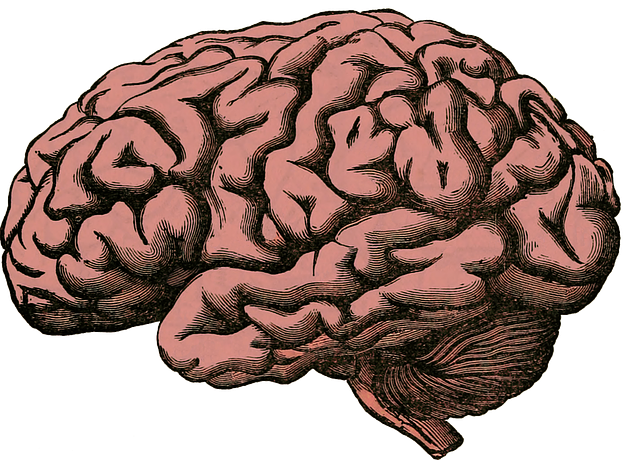Anxiety becomes problematic when persistent, affecting physical, cognitive, and emotional aspects. Recognizing symptoms is key to management. Triggers vary from life events to medical conditions. Westminster Codependency Therapy (WCT) targets unhealthy thinking patterns and relationship dynamics for long-term support. Cognitive Behavioral Techniques (CBT) challenge negative thoughts and beliefs. Adopting a healthy lifestyle with regular exercise, balanced diet, and sleep also reduces anxiety symptoms. Building a support system and journaling can further aid in managing anxiety.
Anxiety is a common challenge, affecting millions worldwide. In this comprehensive guide, we explore effective techniques to manage anxiety and promote mental well-being. From understanding the symptoms and causes of anxiety to discovering innovative therapies like Westminster Codependency Therapy, we provide insights for a holistic approach. Discover evidence-based strategies, including cognitive behavioral techniques, lifestyle adjustments, and the power of support systems. By integrating these practices, individuals can overcome anxiety and enhance their overall quality of life.
- Understanding Anxiety: Symptoms and Causes
- Westminster Codependency Therapy: An Effective Approach
- Cognitive Behavioral Techniques for Management
- Lifestyle Changes and Support Systems for Better Mental Health
Understanding Anxiety: Symptoms and Causes

Anxiety is a natural response to stress, but when it becomes persistent and overwhelming, it can significantly impact daily life. Understanding both the symptoms and causes of anxiety is crucial in effectively managing it. Symptoms manifest physically, cognitively, and emotionally, including rapid heartbeat, excessive sweating, difficulty breathing, restlessness, irritability, and persistent worry or fear. These sensations can be triggered by various factors, such as stressful life events, traumatic experiences, genetic predisposition, or even certain medical conditions.
One approach to addressing anxiety, particularly its underlying causes, is through Westminster Codependency Therapy. This form of therapy focuses on identifying and modifying unhealthy patterns of thinking and behaving that contribute to anxiety. It also emphasizes the development of social skills training to improve relationships and build a support network, which can be beneficial in managing anxiety long-term. Additionally, incorporating Mind Over Matter principles, where individuals learn to reframe negative thoughts and cultivate a positive mindset, has been shown to enhance mental wellness coaching programs.
Westminster Codependency Therapy: An Effective Approach

Westminster Codependency Therapy (WCT) offers a unique and effective approach to managing anxiety by addressing underlying codependent behaviors and relationships patterns. This therapy recognizes that our interactions with others significantly impact our mental health, particularly when it comes to anxiety disorders. By exploring these connections, WCT helps individuals understand the complex web of emotional dependencies that can contribute to elevated stress levels and anxiety symptoms.
Through various techniques tailored to each client’s needs, WCT facilitates self-esteem improvement and inner strength development. It encourages individuals to challenge unhealthy relationship dynamics, set boundaries, and foster more balanced interactions. By implementing these changes, clients not only reduce their reliance on others for emotional validation but also gain powerful stress reduction methods that empower them to manage anxiety effectively in all aspects of life.
Cognitive Behavioral Techniques for Management

Cognitive Behavioral Techniques (CBT) offer a powerful approach to managing anxiety by focusing on identifying and changing negative thought patterns. This form of therapy, often employed in Trauma Support Services, helps individuals challenge their anxious thoughts and beliefs, promoting healthier ways of thinking. By addressing underlying codependency issues and enhancing emotional intelligence, CBT enables people to develop effective coping strategies.
Through self-reflection and skill-building exercises, individuals learn to recognize triggers and manage anxiety symptoms. Moreover, Self-Esteem Improvement is a significant aspect of CBT, as building confidence helps reduce the impact of anxious thoughts. This technique has proven successful in various settings, offering personalized tools tailored to each individual’s needs, thereby fostering long-term anxiety management.
Lifestyle Changes and Support Systems for Better Mental Health

Adopting a healthier lifestyle can significantly contribute to managing anxiety and promoting mental wellness. Engaging in regular physical activity, maintaining a balanced diet, and prioritizing adequate sleep are essential components of this approach. These simple yet powerful changes can reduce anxiety symptoms, improve mood, and enhance overall well-being. For instance, a study published in the Journal of Clinical Psychology highlighted that exercise interventions effectively lowered anxiety levels among participants.
Building a robust support system is another crucial aspect often overlooked in mental health management. Connecting with friends, family, or support groups can provide a safe space to share experiences and gain different perspectives. Westminster Codependency Therapy, for instance, emphasizes the importance of interpersonal connections in healing and growth. Engaging in open communication, seeking empathy, and offering mutual support can foster resilience and create a buffer against anxiety-inducing factors. Additionally, journaling as a mental wellness journal exercise guidance can be therapeutic, allowing individuals to reflect on their emotions, identify triggers, and track progress over time.
Anxiety management is a holistic process that involves understanding symptoms, addressing underlying causes, and implementing effective strategies. By combining therapeutic approaches like Westminster Codependency Therapy with cognitive behavioral techniques, lifestyle adjustments, and robust support systems, individuals can achieve better mental health and enhanced well-being. These integrated methods empower people to navigate life’s challenges with resilience and reduced anxiety, ultimately fostering a more balanced and fulfilling existence.














